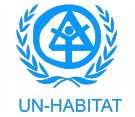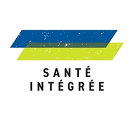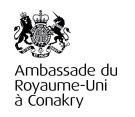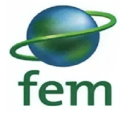
- Publié le 11 octobre 2022
- Recruteur : ONU HABITAT
- Type de Contrat : cdi
- Lieu : Conakry
- Date limite : 26/10/2022
Recrutement D'un Land management consultant
Job Opening
| Posting Title: | Land management consultant |
| Department/Office: | United Nations Human Settlements Programme |
| Duty Station: | CONAKRY |
| Posting Period: | 07 October 2022 - 26 October 2022 |
| Job Opening Number: | 22-United Nations Human Settlements Programme-191397-Consultant |
| Staffing Exercise | N/A |
Result of Service
The consultant will provide advisory services of the Ministry of Urbanism, Housing and Territorial Development and produce a guide for eviction operations, and facilitate training and vulgarization workshops for public authorities and concerned parties.
Work Location : Guinea Conakry
Expected duration : 2 months
Duties and Responsibilities
The United Nations Human Settlements Programme, UN-Habitat, is the agency for human settlements. It is mandated by the United Nations General Assembly to promote socially and environmentally sustainable cities, with the aim of providing adequate housing for all. UN-Habitat is the lead agency within the United Nations for the implementation of the New Urban Agenda. UN-Habitat supports Member States and development partners to transform cities into safer, more resilient and healthier places with better opportunities. She works with organizations at all levels, including all spheres of government, civil society and the private sector.
The Project “Strengthening multi-stakeholder dialogue for responsible land and environmental governance in Lower Guinea” is funded by the Peacebuilding Fund over a two-year period (January 2022 – December 2023) and implemented by UN-Habitat, the United Nations Development Programme (UNDP) and the non-governmental organization ACORD, in close collaboration with national counterparts under the leadership of the Ministry of Urbanism, Housing and Territorial Development.
This initiative aims to strengthen multi-stakeholder dialogue and social cohesion, and to establish gradual pragmatic mechanisms for responsible and secure land governance for vulnerable households and at risk of violence, in order to prevent conflicts linked to land operations exploitation of mining and quarry resources in rural and peri-urban areas and the occupation of public rights-of-way in urban areas in Lower Guinea. More specifically, the project will carry out advocacy and revision of texts for a legal, progressive and adapted land reform, promotion of legal texts and training actions and pilot implementation of tools for securing residential occupation and land; sensitization of local communities, administrative officials, the private sector on their rights and obligations; support in the establishment of redress mechanisms for eligible households subject to infrastructure demolition operations as well as the prevention and monitoring of human rights violations related to mining.
The project responds to the growing problem of violent conflicts and tensions around access to and use of (natural) resources, which excludes part of the population and has not been managed so far in a systemic and inclusive manner. It is structured around three strategic results, respectively: R1 - communities in extractive sites know their land rights and claim them peacefully from local public authorities and the extractive private sector (under the responsibility of ACORD); R2 - collaboration and economic partnership between extractive companies and communities are strengthened in the target areas (under the responsibility of UNDP); and R3 - target municipalities improve their urban planning tools and develop local development policies that mitigate conflict (under the responsibility of UN-Habitat).
Different types of conflicts affect the economy and the local population in Lower Guinea, including:
¿ Conflicts related to the exploitation of mining resources and quarries;
¿ Land conflicts related to the occupation of agricultural land by uncontrolled urbanization;
¿ Land conflicts related to eviction operations in urban and semi-rural areas.
Urban growth in Guinea is marked by spontaneous urbanization leading to the creation of informal neighborhoods and the occupation of public spaces (maritime areas, natural areas, roads, etc.). Either through ignorance of existing construction standards/legal texts and the regulatory right-of-way of public roads, or through lack of accessibility to the formal city.
Illegal and anarchic occupations regularly lead to eviction operations whose procedure is not clearly enough defined by the various legal texts governing the land sector in Guinea, which generates frustrations that sometimes lead to violent clashes between the citizens and state representatives.
With a view to strengthening good land and urban governance and above all reducing the related tensions or inequalities, potential sources of conflict observed in the localities concerned, one flagship activity consists in supporting the public authorities in developing a protocol for conducting eviction operations for public utility, adapted to the Guinean context and aligned with international directives.
The protocol would notably but not only include the procedures for informing the public and conducting operations, as well as the grievance redress mechanism available to communities.
Thus, a series of activities aimed at better framing and conducting eviction operations and reducing the various conflicts in the areas concerned is envisaged, in consultation with the authorities in charge of these questions. Training and vulgarisation workshops on the content of the protocol for implementing eviction operations will be organized at different levels, particularly at the central, prefectural and communal levels in the City of Conakry and the prefectures covered by the project (extended to religious leaders, civil society organizations, representatives of mining and quarry concessionaires, for example). This set of activities will contribute to improving urban planning and integration of socio-economic development aspects that can mitigate land-related conflicts.
These terms of reference are part of the implementation of this set of activities in the various identified areas.
Reporting line
The Consultant will work under the supervision of the CTA (Technical Advisor Chief) for Guinea Projects in Guinea.
Duties and responsibilities
The consultant will perform the following tasks:
¿ Develop a protocol for implementing eviction operations for public authorities, detailing the procedures for informing the public and carrying out operations, as well as grievance redress grievance redress mechanism available to communities. The guide will put an emphasis on respect for human rights and the prerequisites to be taken into account; it will also include guidelines for land management and use, resettlement, and social and environmental safeguards;
¿ Facilitate a validation workshop with concerned authorities and other stakeholders;
¿ Translate the protocol into accessible training modules, and facilitate 5 training and dissemination workshops with concerned technical services and stakeholders;
¿ Produce an overall report of the process.
Qualifications/special skills
Advanced (master’s) degree in Urban and Regional Planning, Development Studies, Sociology, Law, Land management, or any other field relevant to the assignment is required.
Experience
•At least seven years progressive work experience in the field of urban or environmental development, and land management issues and research/ policy development is required. Working experience with the public administration in Western Africa is required. Experience in social cohesion and prevention of land-related conflicts would be an asset.
•Experience in writing policy, reports, publications and strategies;
•Experience in developing and delivering teaching/ training materials;
•Proven experience in both research projects and teaching/ training projects;
•Very good knowledge of international experience and best practices regarding land management and local governance is desirable.
Languages
English and French are the working languages of the United Nations Secretariat. For the post advertised, fluency in oral and written French is required. Knowledge of the local languages used in the project locations are desirable.
No Fee
THE UNITED NATIONS DOES NOT CHARGE A FEE AT ANY STAGE OF THE RECRUITMENT PROCESS (APPLICATION, INTERVIEW MEETING, PROCESSING, OR TRAINING). THE UNITED NATIONS DOES NOT CONCERN ITSELF WITH INFORMATION ON APPLICANTS’ BANK ACCOUNTS.





